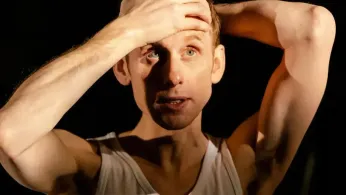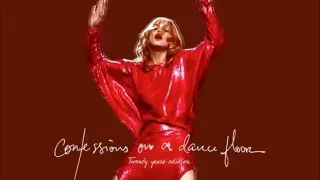
6 hours ago
Quiet Defiance: Robert Emms and the Power of Queer Love in ‘The Choral’
READ TIME: 3 MIN.
“The Choral,” released in UK cinemas on 7 November 2025, brings together an impressive creative team to tell a story rarely depicted with such nuance: the quiet, coded lives of queer people in early 20th-century Britain. Set in 1916 in the fictional Yorkshire mill town of Ramsden, the film follows the local choral society as it strives to survive while the devastation of World War I looms and many of its male members are conscripted to the front. At the center is Robert, played by Robert Emms, whose subtle portrayal of a gay man navigating love and loss is being widely praised for its emotional depth and authenticity .
Directed by Nicholas Hytner, known for his acclaimed stage and film work, and written by Alan Bennett, the BAFTA, Olivier, and Tony Award-winning playwright, “The Choral” is their fourth collaboration after “The Madness of King George,” “The History Boys,” and “The Lady in the Van.” The film’s script is lauded for its restraint and humanity, never naming queer identities explicitly but making them deeply felt through glances, silences, and shared music . Supporting performances from Ralph Fiennes as Dr. Guthrie and Roger Allam as a key member of the choral society add further gravitas to the ensemble .
In interviews, Emms discusses how the film’s exploration of queer love is “quietly radical,” focusing on unspoken bonds and the search for connection in oppressive times. Robert’s relationship with Guthrie is depicted with tenderness and restraint, shaped as much by what is left unsaid as by what is shown. “They have a quiet understanding that they are both gay, and the very respectful offering of friendship to one another helped me to see that whilst there may have been a physical attraction too, what was clear was that companionship in a time of total devastation was something they were both longing for,” Emms told Attitude .
The film’s context—amid the trauma of war and the social stigma of the early 1900s—serves as a backdrop for themes of defiance and vulnerability. “Even today queer existence still often requires defiance on a daily basis,” Emms observed, drawing parallels between past and present struggles for LGBTQ+ acceptance .
Music, particularly the society’s performance of Edward Elgar’s “The Dream of Gerontius,” becomes a metaphor for survival and hope. Both Emms and Bennett have highlighted how art can create spaces for self-discovery and community, especially for those whose identities are marginalized. “If we have been lucky enough to discover ourselves and find acceptance of ourselves through an art form, we should cherish that experience, pass on that knowledge to younger generations and continue to support the arts so it can continue to transform people’s lives in the future,” Emms said .
Premiering at the Leeds International Film Festival and included in the 2025 Rehoboth Beach Film Festival lineup, “The Choral” has generated international attention for its sensitive portrayal of queer history and the power of collective artistry . Critics and LGBTQ+ commentators have commended the film’s refusal to sensationalize, focusing instead on the lived realities and subtle triumphs of queer individuals during one of history’s darkest periods .
As LGBTQ+ representation continues to expand in cinema, “The Choral” stands out for its intersection of history, identity, and the enduring importance of art. Its arrival is a timely reminder that even in silence, queer stories are powerful—and that the act of living authentically can be a form of quiet, lasting resistance.






